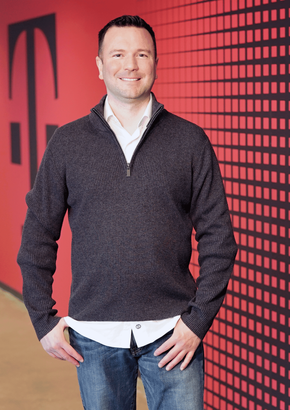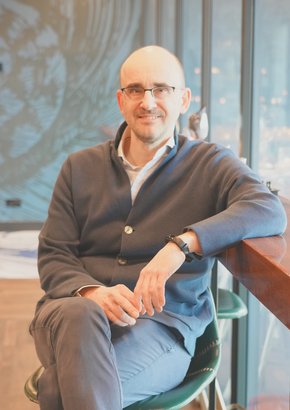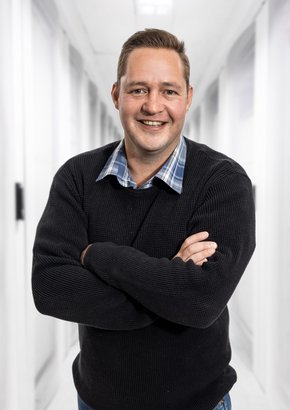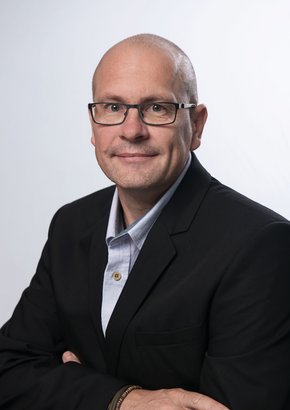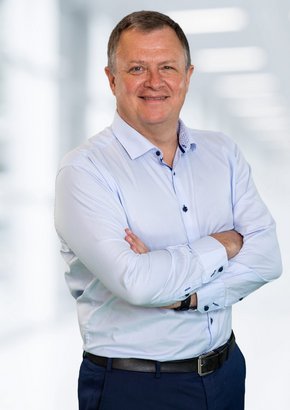
Victoria Kuketz
Director of Corporate Engagement at Catalyst
While we often introduce an interviewee in this part of the magazine, this issue marks a special moment where an executive sustainability leader from PwC Canada and three women take part in a discussion about the successful implementation of the CivicAction mentorship programme for Black, Indigenous and People of Colour (BIPOC).
James Temple (JT), Managing Director & Chief Sustainability Officer at PwC Canada, praises the great success of his mentees:
- Victoria Kuketz (VK), Director of Corporate Engagement at Catalyst
- Erica Chan Glueck (ECG), Associate Director, Environment Lead at qb. consulting
- Cynthia Lucar Diaz (CLD), Advisor, Policy Waste Reduction at Region of Peel
JT: For nearly 20 years, CivicAction has mobilised business and community leaders from across every sector to create solutions to the biggest challenges impacting the Greater Toronto and Hamilton Area. As part of their work each year, CivicAction chooses 25 DiverseCity Fellows—talented change makers from diverse communities who represent the next generation of business and social leadership—and matches them with senior executive mentors to help them amplify their leadership capabilities, grow their network, and sponsor them for new opportunities to help them embolden their change making abilities.
How well do you believe the corporate environment supports BIPOC women?
VK: Canada’s corporate environment is focused on finding the best talent, empowering expertise, and creating a productive environment to leverage innovative, strong results… in theory. But the truth is there is no one-size-fits-all approach, and this is why we simply do not see equitable representation of diverse talent in executive leadership positions. Strong, capable employees are persistently overlooked, and their talent is not sufficiently supported, fostered, or leveraged due to conscious and unconscious bias. Competent individuals often find themselves and their capabilities inadequate.
Despite the 2023 emphasis on authenticity, career success still hinges on fitting the executive mould. Progress is shaky, with recent DEI backlash and political divides threatening the critical in-roads made to achieve a truly merit-based and unbiased corporate environment in service of recognising and rewarding expertise and inclusive leadership. What we really need to see is EVERY leader incorporating and leading with a DEI lens into their respective portfolios, and this leadership competency being tied to performance, advancement, and compensation measures to really move the needle.
ECG: I’ve seen an abundance of programmes, resource groups, committees—essentially opt-ins and work done on the side of peoples’ desks in various corporate settings. Much of the time these “supports” are spearheaded by BIPOC women or they are major contributors to perseverance beyond the initial spur of excitement. It’s really easy to say one is supportive of something, but much harder to work on change with intention and not be wholly self-serving about it either—the latter part has a lot to do with collective and individual behaviours and attitudes. That’s a lot harder and takes longer to shift rather than just putting on programmes or things for folks to opt in voluntarily.
I’m not sure I have seen massive shifts in attitudes and behaviours within corporations, but there’s been years of conversation and the tone changes depending on context. All of this is anecdotal based on my personal experience; I can’t say for certain what all of that means for actual, measurable, meaningful data in favour of or against corporate “support” of BIPOC women.
CLD: While I can’t speak for the corporate sector, I have seen positive developments in my experience in the nonprofit and public sectors that support BIPOC women. The nonprofit sector, in particular, has taken a lead in promoting DEI initiatives with leadership roles representative to the communities they serve.
The public sector, perhaps, mostly resembles the corporate environment. I have seen progress introducing DEI programmes and intentional inclusivity, however, there needs to be a cultural shift, organisationally, to fully support BIPOC women. A mindset-shift that truly values and envisions BIPOC women as leaders, and programmes that actively champion the movement of BIPOC women into visible leadership positions through equal opportunities.
What influenced you to get involved in a mentorship programme?
CLD: I met James, Victoria and Erica through CivicAction’s CivicMatch. It's a programme that connects executive leaders with those rising up. As a sustainability practitioner, I was interested in learning about what sustainability looked like, in practice, at the executive level and how I, as a Latina (BIPOC woman, racialized minority), can get there.
In particular, to learn about navigating challenges, implementing successful initiatives, and fostering a sustainability mindset in an organisation. What was intended to be a one-time chat, ended up being the opportunity of a lifetime—walking out with a mentor who has so graciously given his time, insights, and opened doors coupled with new friendships.
ECG: Speaking entirely selfishly, I do genuinely think that a different human being—with all of their varying facets and experiences—is an immensely useful tool in self-reflection and continued learning. It’s also really important for me to be able to check myself; my understanding, assumptions and see if others might interpret situations in a different or similar manner.
It’s really important to me to always have a little self-doubt; I think it keeps me level-headed, open-minded, and helps me to think about solutions or alternative pathways much more efficiently and effectively rather than getting stuck in an unproductive negativity cycle. Something I loathe a lot is feeling stuck or getting bogged down in all of the ways in which it could be but isn’t…having mentorship and a positive and growth-minded community helps to inspire alternative thinking.
VK: As a racialized woman with an intersectional identity, I know that historically marginalised groups have not sufficient access or opportunity to be mentored by an executive sponsor. From a young age, I had an appreciation of mentorship and sponsorship because I have seen firsthand that hard work and expertise does not always correlate with professional advancement. I want to live up to my potential, learn executive presence, and be an innovator in my field. I knew James was the right person to guide me.
What were the qualities that you looked for in a mentor?
VK: Honestly, I sought a sponsor, not just a mentor. James, a conscious sponsor, approaches our time together with a keen awareness. As the Director of Corporate Engagement at Catalyst, a global DEI think tank, my work delves into the intricacies of this field. Catalyst's research asserts that while mentoring is vital, sponsorship, especially for BIPOC women, is the game-changer. Mentors guide, but sponsors go further and advocate with influence and power, propelling career growth for their mentees.
ECG: Someone who works directly in sustainability. I wanted to be able to ask questions and have a genuine conversation with someone in a subject or field I am interested in. I’ve allowed my specific interest for the work to guide me rather than having something (a position, promotion) be the north star.
CLD: Someone who is passionate about making the world a better place, starting with where they are with an understanding that small actions have ripple effects. After that, I was looking for someone with experience and expertise in sustainability who is transparent, listens and provides feedback, shares thoughts and opinions respectfully, encourages and challenges me. Most importantly, I was looking for a champion who would have a good understanding of me as a professional and truly invest their time and effort in my leadership growth and development rather than just being a guide in my career journey.
Explain some of the key things you’ve gained through mentorship that you otherwise wouldn’t have learned (or opportunities you wouldn’t have received)?
ECG: I enjoy the community of women plus James that we’ve built. It gives me joy when I hear Victoria and Cynthia thriving in their own chosen paths. It also helps me pause and reflect on my own experiences and sheds new light on situations where I would have reacted differently. In James, I feel that I always have a wise sounding board which is maybe a rarity and difficult to come across in this field.
CLD: The two biggest takeaways from our mentorship journey have been the community we’ve created and leadership growth. Our little community provides the opportunity for a safe space to share and learn, as well as, challenge and celebrate each other. Hearing Victoria’s and Erica’s perspectives, on top of James’ advice, made me take a step back to reflect before moving forward. In terms of leadership, I’m much more confident in myself as a leader.
VK: Our initial conversation was built to be a one-time virtual coffee via Civic Action’s Civic Match program, but James saw the bigger picture and graciously transformed it into a long-term coaching, mentoring, and sponsoring relationship. We meet regularly for candid conversations, and recently, he brought us all to the 2023 Partnership conference along with PWC delegates to enhance our skill development, and introduce us to his network, a door that would not have been otherwise opened to us. And his coaching, and constructive criticism has been instrumental.
What would you encourage women in a similar situation to look for in a mentor?
ECG: This is for mentorship but also just my general two-cents. Understanding myself and accepting the factors that do not fit the mould, being at least ~80-90% comfortable with myself as a person has helped me navigate a lot in life. It helps to say when something is falling short off the mark or resonating. I felt more at ease and confident and able to accept (and give!) mentorship in my own way the more I became aware and accepting of myself and my motivations.
CLD: When looking for a mentor, I suggest taking stock of what you want out of a mentorship. I’ve found that what I wanted and my motivations changed throughout my career journey. Consider seeking mentorship opportunities outside of formal mentorship programs, giving you more flexibility in choosing your mentor rather than being matched with one. A solid foundation is based on values, seek mentors that share similar values or principles and have a commitment to building a relationship, meaning that they are willing to invest the time and effort in your growth and development. Seek mentors who encourage you and appreciate the unique challenges BIPOC women face.
VK: Since Erica’s and Cynthia’s comments are so thorough, I’ll share my thoughts on mentorship readiness instead. I think there is some personal work to be done in order to thrive as a mentee: It requires strong, accountable performance, appreciation for constructive criticism, and a commitment to a growth mindset. Reciprocity and a dedication to paying it forward are crucial as well. Erica, Cynthia, and I have embraced becoming mentors and sponsors to early-career bipoc women now too. Our aim is to co-develop and foster an ecosystem where talent thrives. We're also here for James, eager to brainstorm and strategize on his projects and ideas.
What can businesses do to encourage greater support for BIPOC women?
ECG: Challenge your perceptions and assumptions about the BIPOC women in your firms. Advocate and spur actual opportunities for growth. Listen to and observe BIPOC women in your respective workplaces. Diluting our experiences to quantitative data and metrics is not always helpful.
VK: I totally agree with Erica here and I think that what James and PWC Canada are putting into practice is exactly what is needed. Catalyst actually has a model for Inclusive Leadership which teaches that leaders must “lead outward” by demonstrating accountability, ownership, and allyship while simultaneously “leading inward” with curiosity, humility and courage. The five hallmarks of inclusion emphasise valuing, trusting, and providing psychological safety where employees can be themselves, address tough issues, be innovative and take risks. This isn't just for those fortunate to be mentored by or work with James Temple; it's a necessity for all employees.
Crucially, every leader must integrate DEI into their portfolios, linking this competency to executive performance, advancement, and compensation for meaningful impact and systems change.
CLD: Move beyond DEI policies and embed equal opportunity practices into the culture of the organisation. Actively increase representation of BIPOC women in all leadership roles, including those most visible and accountable to the community. Create opportunities for open dialogue to listen and understand the experiences of BIPOC women within the workplace. Establish mentorship programs that are tailored to the needs of BIPOC women. Be transparent, this is a journey not a moment, share failures and take action for addressing them going forward. We can’t do it alone, build partnerships with communities to better understand and address broader societal challenges that impact BIPOC women.
Make sure you check out the latest edition of Sustainability Magazine and also sign up to our global conference series - Sustainability LIVE 2024
**************
Sustainability Magazine is a BizClik brand
Featured Interviews
“The vision behind the customer centric Supply Chain (SC) transformation programme, emphasised the potential for supply chains to contribute to the top line, in addition to the traditional bottom line.”

